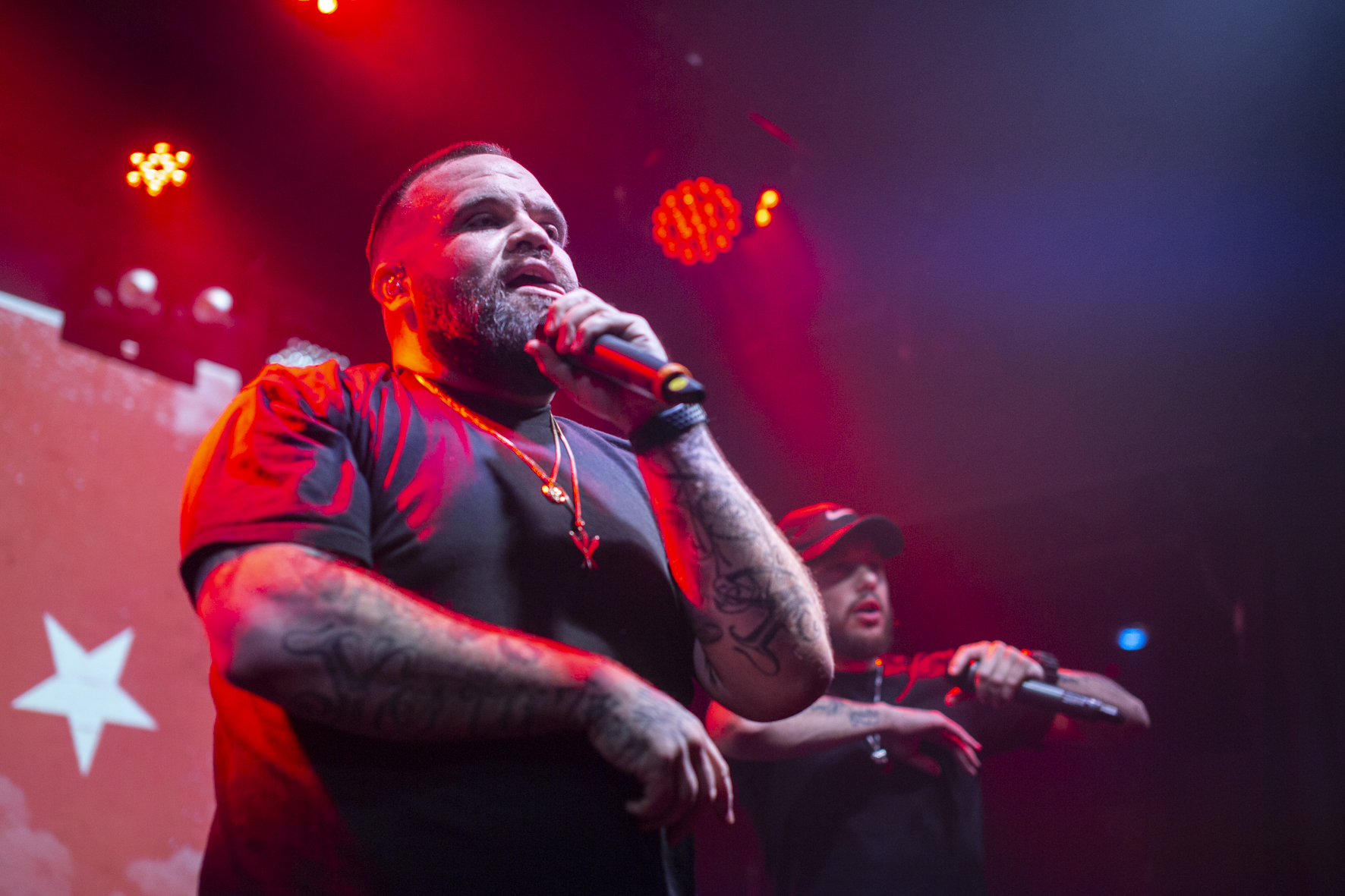There are songs that are committed to truth-telling, that convey a profound sorrow, and make the listener weep with their healing delivery...
‘Took The Children Away’ by Archie Roach is one of those songs. Released in 1990, the landmark – which won the Human Rights Achievement Award in 1991 – is resonating with a new generation of artists. With the icon’s blessing, rapper Adam Briggs wrote the compelling sequel, ‘The Children Came Back’, 25 years after the classic song’s release.
While ‘Took The Children Away’ pays homage to the Aboriginal and Torres Strait Islander children who were removed from their families (Stolen Generations), ‘The Children Came Back’ celebrates the strength and heroes of Australia’s First Peoples, naming Cathy Freeman, Adam Goodes, Patty Mills, Jimmy Little, Gurrumul and Roach within the song’s lyrics.
Read Melbourne’s most comprehensive range of features and interviews here.
These two songs embody why NAIDOC Week is so important: it celebrates the resilience, survival, wisdom and champions of Aboriginal and Torres Strait Islander peoples while continuing to acknowledge the issues of ongoing trauma, disadvantage and inequality.
In the week beginning July 3, NAIDOC (National Aborigines and Islanders Day Observance Committee) Week celebrations will be held across Melbourne to celebrate and recognise the history, culture and achievements of Aboriginal and Torres Strait Islander peoples. With its origins in the 1938 Day of Mourning – the first national Aboriginal civil rights gathering and hailed as the start of the modern Aboriginal political movement – NAIDOC Week provides an opportunity for all Australians to gain knowledge about the world’s oldest living cultures and to engage with their local Aboriginal and Torres Strait Islander communities through various events organised by local councils, government agencies, schools and workplaces.
“For me, I’m so enthralled and wound up and bound to my work that every week is NAIDOC Week for me,” says Briggs. “I don’t switch and change my positions on anything by calendar month.
“I just try to embody my values and the values that have been handed down to me from my parents and my grandparents and carry that every day of the year.”
“There’s going to be some great events, cultural activities, and celebrations for blackfellas. For me, NAIDOC Week or not, I show up and do what I do.”
This year’s theme for NAIDOC Week is ‘Get Up! Stand Up! Show Up!’, which stands for a commitment to support and secure institutional, structural, collaborative, and cooperative reforms through seeking proper environmental, cultural and heritage protections, constitutional change, comprehensive truth-telling, working towards treaties and calling out racism.
View this post on Instagram
“I was thinking about the slogan they’ve got this year – the theme ‘Get Up! Stand Up! Show Up!’ For me, it’s a reminder that we can’t be complacent. Many blackfellas have been doing this fight and this work for a lot longer than I’ve been alive, so I’m not allowed to be tired yet. It’s not about fighting all the time, but it’s about support and get up, stand up and show up for ourselves and for each other.”
NAIDOC Week encourages all Australians to engage with Aboriginal and Torres Strait Islander communities, to acknowledge our history and to realise that acknowledgement is a crucial unifier.
“I think a lot of the willingness to not engage with it, that White Australia has, comes from the top-down – it’s that Howard-era of ‘I refuse to look at the past with a black armband’, and so that tells people ‘that’s not my fault, why should I have to do anything?’
“It’s like ‘Mate, I’m not asking you to go and volunteer or give up your time’, but acknowledge – wholeheartedly and truthfully – what went on and how this manifested and how we’re here and what that disadvantage is.
“For the regular Joe, it might not be your job to close the gap on Indigenous health; these are complex, sophisticated issues, but acknowledgement that it’s an issue and that the people, whose job that is, should be doing something about it and fixing it. For the average Karen or Darren on the street, I’m not asking you to fix it – I’m asking you to understand that it’s an issue, wholeheartedly and truthfully.”
Through his music, writing and speeches, Briggs has been a compelling advocate for the need to address history as a whole and acknowledge the truth. “Not acknowledging truth and denying someone’s truth is abuse,” says Briggs. “There’s no healing to come from that. Australia has a history of picking and choosing what we want to celebrate. When you deny how things happened or how things came about, we’re not going to get the full picture. Australia won’t have a true identity until it acknowledges wholeheartedly that the culture that has been here for nearly 100,000 years is the true identity of this place.”
The proud Yorta Yorta artist, who was awarded Artist of the Year at the 2018 NAIDOC Awards, started his own record label in 2015, Bad Apples Music, to support and mentor new Aboriginal and Torres Strait Islander artists. “It was to create a platform and design something that was going to be able to amplify black stories,” says Briggs. “If I put out five black artists with their albums, then that’s five more that weren’t there, and just trying to change the landscape little bits at a time.”
NAIDOC Week celebrations will be held across Melbourne until July 10.







